The Global Competitiveness Report, World Trade Report, and Africa’s Pulse launched this week
This week, the World Economic Forum released its annual Global Competitiveness Report, which this year focused on declining trade openness and the threat it poses to global growth, as well as the increasingly important need for innovation. The continent’s results were a mixed bag. Regionally, competitiveness in sub-Saharan Africa weakened due to the deteriorating macroeconomic conditions in the region, mainly driven by the slump in commodity prices. The slow growth has negatively affected the African financial sector, tightening credit conditions and reducing liquidity. Still, Africa improved scores in business environment, information and communication technologies, and infrastructure. However, the improvement in said scores has not countered the poor performance in other sectors used to assess the global competitiveness index such as institutions and investment in education. Globally, Mauritius and South Africa are Africa’s most competitive nations, ranking at 45th and 47th respectively. There were some big movers this year, too. Despite its political and currency woes, the report praises South Africa’s financial markets, infrastructure development and commitment to education. Rwanda improved its ranking by 6 positions as it strengthened its macroeconomic climate, infrastructure development, and educational investment. Zambia’s rank worsened by 22 positions amid the drop in copper prices and the political uncertainty which preceded this year’s presidential election.
The World Trade organization also released their annual World Trade Report 2016: Levelling the trading field for SMEs. The report aims to encourage the participation of Africa’s small and medium enterprises (SMEs) in global value chains, as studies on African firms have shown that the participation of SMEs in international markets promotes growth and employment as well as enhanced productivity and innovation. The report also highlights the exclusion of Africa’s SMEs (and large firms) from global value chains. When measuring direct exports as a percentage of total sales of SMEs, in the manufacturing sector, African SMEs only export 3 percent of their total sales, against 8.7 percent in developing Asia. Additionally, the report finds that, once established, African SMEs take twice as long to start exporting than Asian SMEs.
Yesterday, the World Bank’s Office of the Chief Economist for the Africa region released its bi-annual report entitled, “Africa’s Pulse.” The region’s growth forecast was cut to 1.6 percent, revising the 3.3 percent growth figure predicted in the April publication. The revision was driven by the declining growth in Nigeria and South Africa, being steeper than first perceived. Added to the list of worrying factors are: political uncertainty, droughts and security concerns. Still, the report states that the growth story across sub-Saharan Africa is not homogenous. Despite the declining growth in the region as a whole, a few African countries—Ethiopia, Rwanda and Tanzania—are computing growth rates which surpass 6 percent. Cote d’Ivoire and Senegal have become some of the region’s top performers. The report states that these countries have strong monetary and fiscal policies, improved business environment, effective institutions and diverse exports.
Nigeria explores selling oil stakes, a $1 billion loan, and new investment incentives to energize its lagging economy
Earlier this week, the Nigerian government announced its consideration of selling stakes in its oil and gas industry; the last time such a sale occurred was in 1993. Its current oil and gas holdings account for about two-thirds of its government revenue, but according to businessman Aliko Dangote, the sale could “help the country raise the $15 billion that is needed to revive the economy.” Due to low commodity prices, the Nigerian economy has been struggling and has fallen into recession: Also foreign-exchange reserves have fallen by over one-third since late 2014. The IMF predicts a contraction of the country’s economy of 1.8 percent in 2016. Inflation is over 17 percent. Bloomberg reports that internal disagreements are stymieing potential policies to halt the recession. On Monday, it reported on a “misalignment between monetary and fiscal policy” in the country and that “Central Bank Governor Godwin Emefiele last week ignored calls by Finance Minister Kemi Adeosun to cut borrowing costs and kept the key interest rate unchanged at 14 percent.”
The country has also been negotiating a $1 billion concessional loan from the African Development Bank at 1.2 percent in order to cover its 2016 budget deficit. On Monday, AfDB President Akinwumi Adesina called for smart policies: “What is needed is not only to spend your way out of the recession, but to also incentivize your way out of the recession.” Adesina recommended a number of tough policies, including repealing fuel subsidies, devaluing the naira, incentivizing industry to do import substitution, promoting investment in agriculture and agro-industry, and supporting small and medium enterprises.
At the same time, during the AGOA Forum, Nigerian officials called for the United States to reverse its decision not to import crude oil imports from Nigeria. Nigerian Minister of Labor and Employment Chris Nigige, argued, “”Rescinding her decision on Nigerian crude is one of such steps that could be taken to buoy up our economy and regain enough capacity to protect workers rights and promote decent work in an inclusive economic growth.”
AGOA Forum explores vision for post-AGOA U.S.-Africa trade
Following last week’s U.S.-Africa Business Forum in New York City, the U.S. government held its 15th annual African Growth and Opportunity Act (AGOA) Forum in Washington D.C. from September 22 to 26. With the 10-year renewal of AGOA in June 2015, extending the U.S.’s unilateral market access provisions for Africa until 2025, this year’s AGOA Forum focused on making the most of the trade program’s final 9 years while preparing for the future of U.S.-Africa trade once AGOA ends.
As noted by Representative Karen Bass in a piece for The Hill, despite the benefits that AGOA has brought to the U.S. and Africa in terms of trade and investment promotion as well as job creation, “…as with any temporary tariff waiver program, AGOA cannot produce the certainty and depth in the U.S.-Africa trade and investment relationship that parties on both continents need in the long-term.” Therefore, “[a]n updated framework is urgently needed,” U.S. Trade Representative Michael Froman and Kenyan Cabinet Secretary for Foreign Affairs Amina Mohamed argue in a Project Syndicate article. A report launched by the Office of the U.S. Trade Representative at the forum, Beyond AGOA: Looking to the Future of U.S.-Africa Trade and Investment, explores the building blocks of a post-AGOA trade relationship, stating that the future may hold a range of policy mechanisms “from free trade agreements, to cooperative arrangements like Trade Africa, to preference programs, to possible hybrids and alternative approaches in between,” which should include commitments to policy areas including “trade facilitation, intellectual property, labor, sanitary and phytosanitary measures, market access, services, investment, environment, technical barriers to trade, and transparency and anti-corruption.”
Meanwhile, while AGOA is still in existence, economist Christopher Wood discusses on the African Development Bank Integrating Africa blog some interventions for swift impact in the promotion of exports, such as supporting firms seeking standards certification to export to the U.S.; investing in intermediary firms such as marketing agencies and distributers; and developing local networks to ensure freight cost sharing.
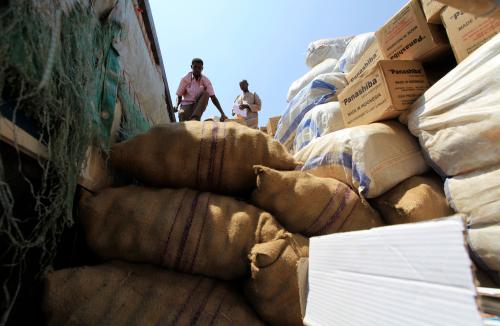
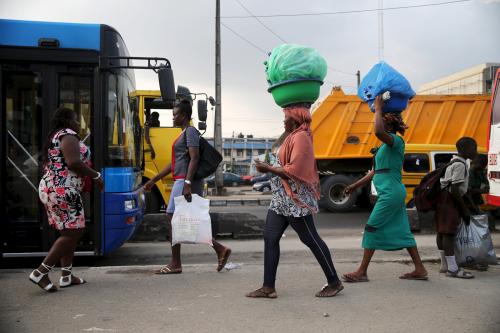
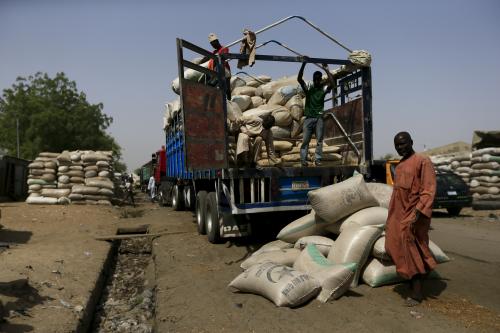
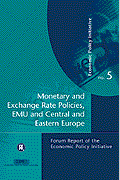
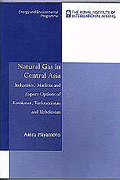
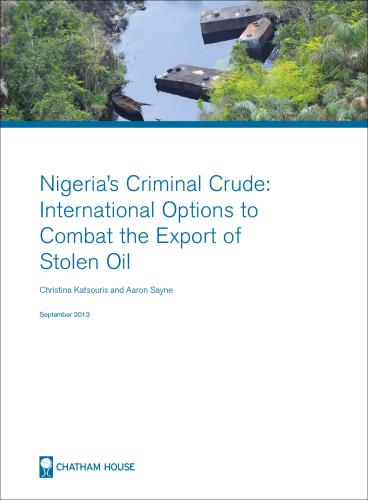



Commentary
Africa in the news: Top economic reports assess African competitiveness, Nigeria considers selling oil stakes, and AGOA forum rethinks US-Africa trade relationship
September 30, 2016